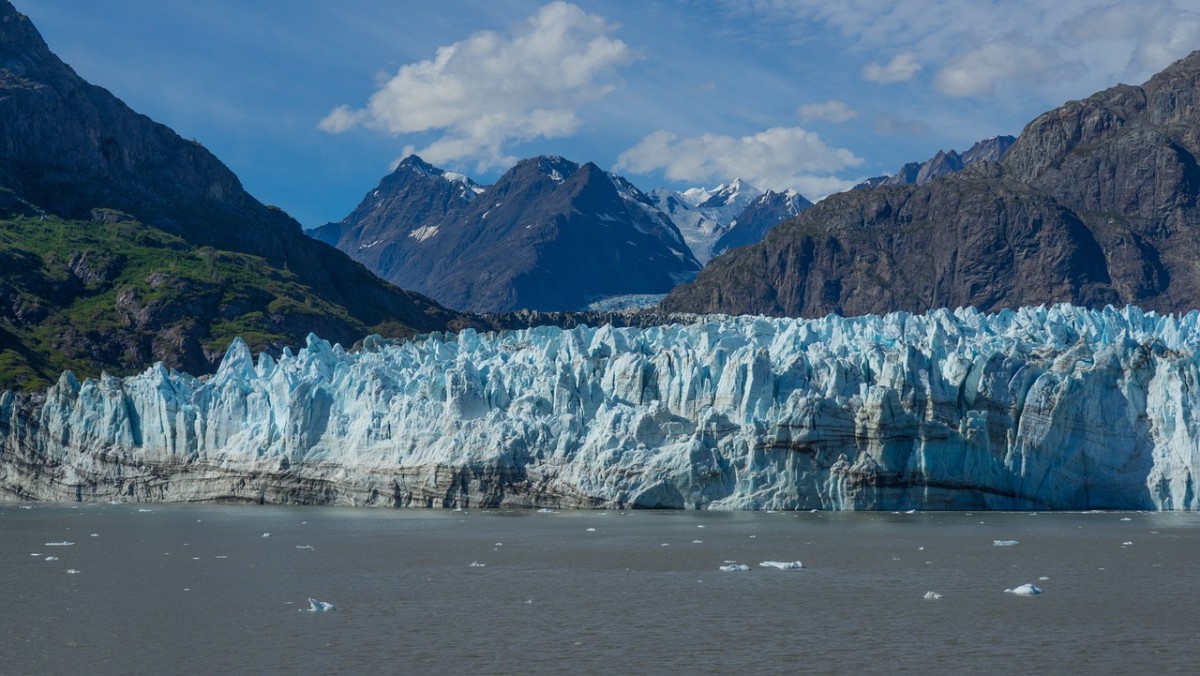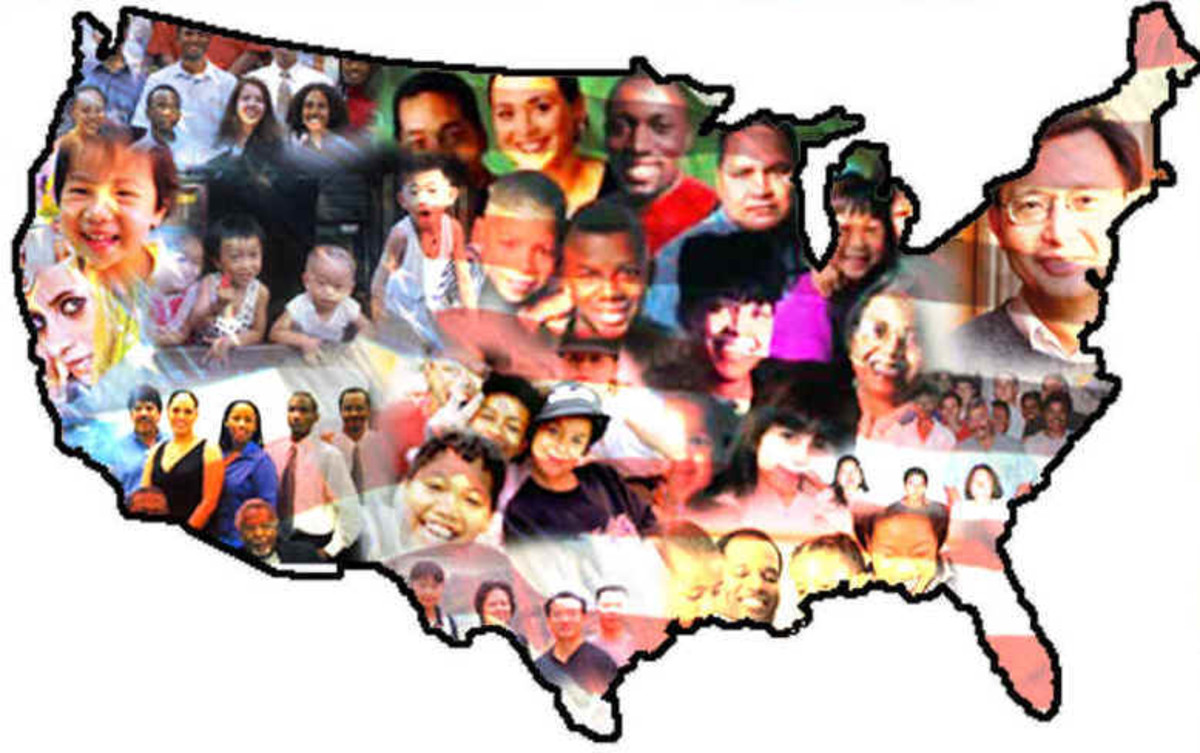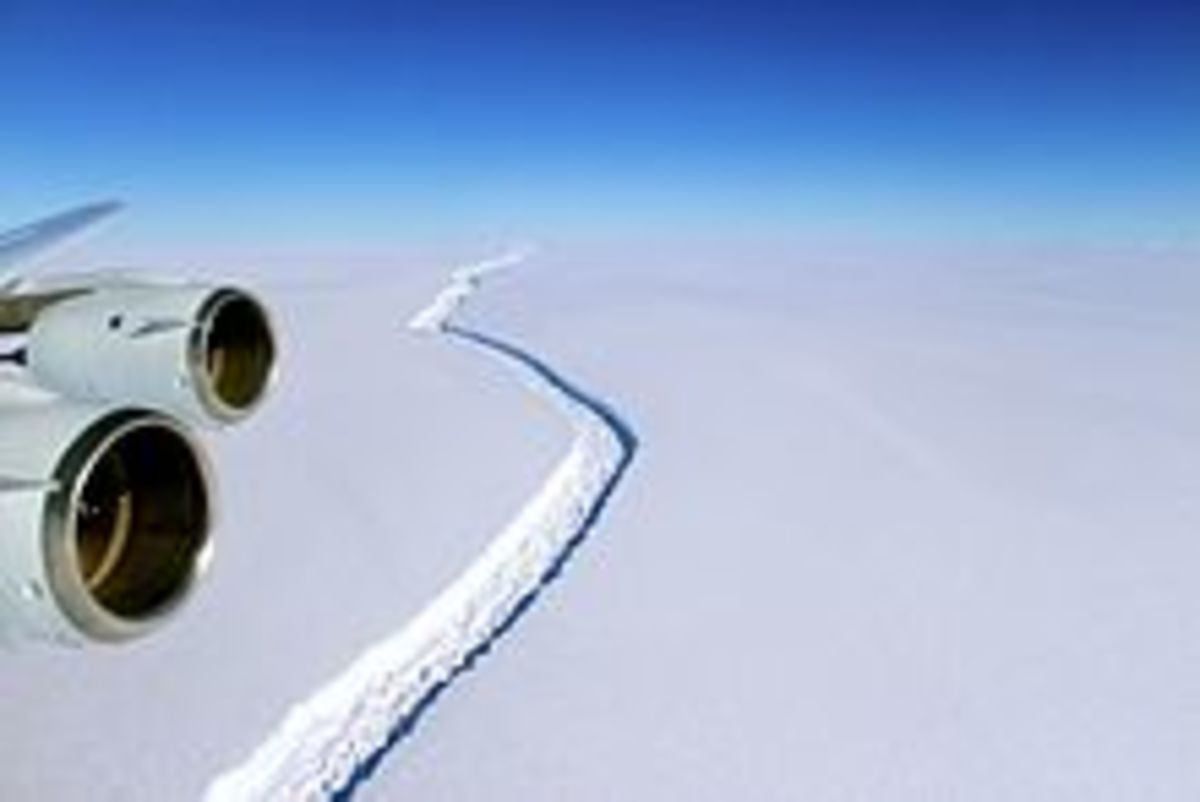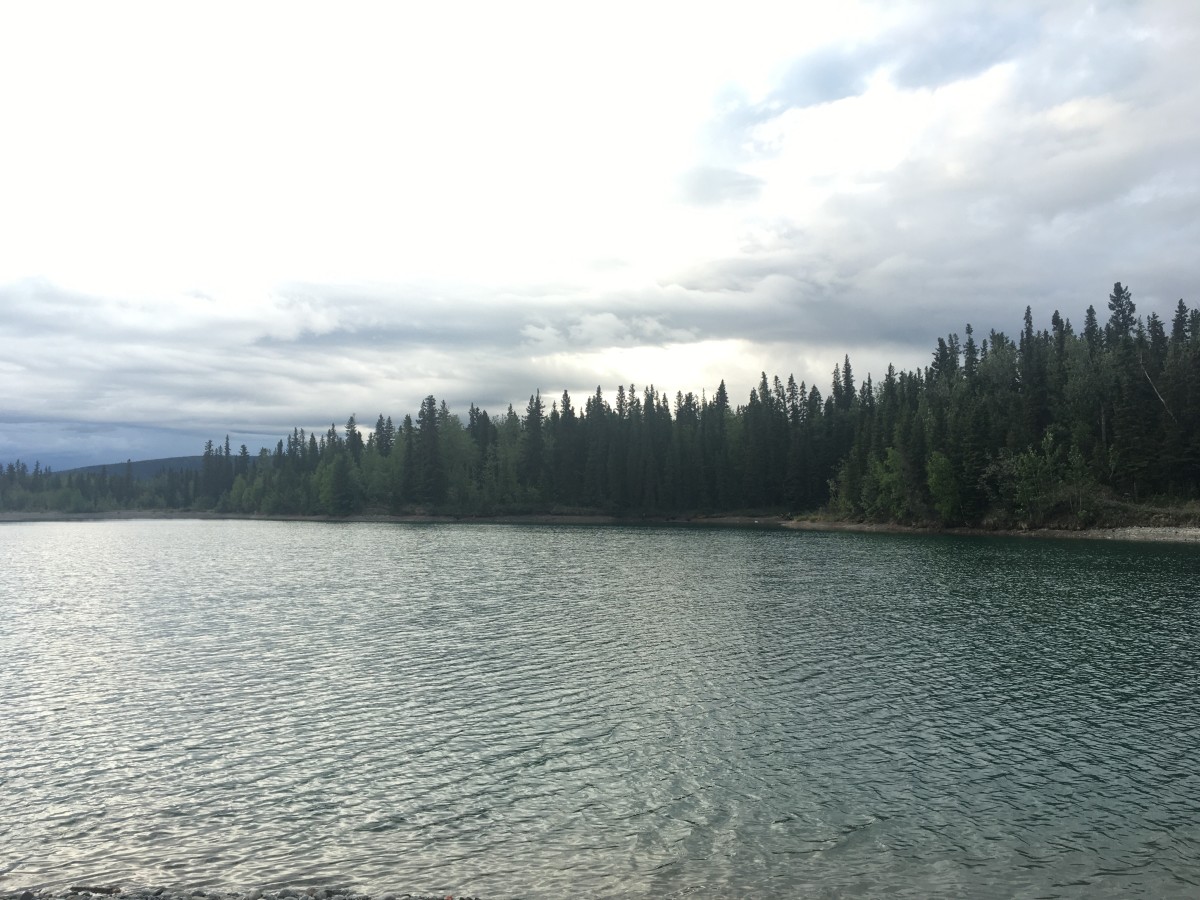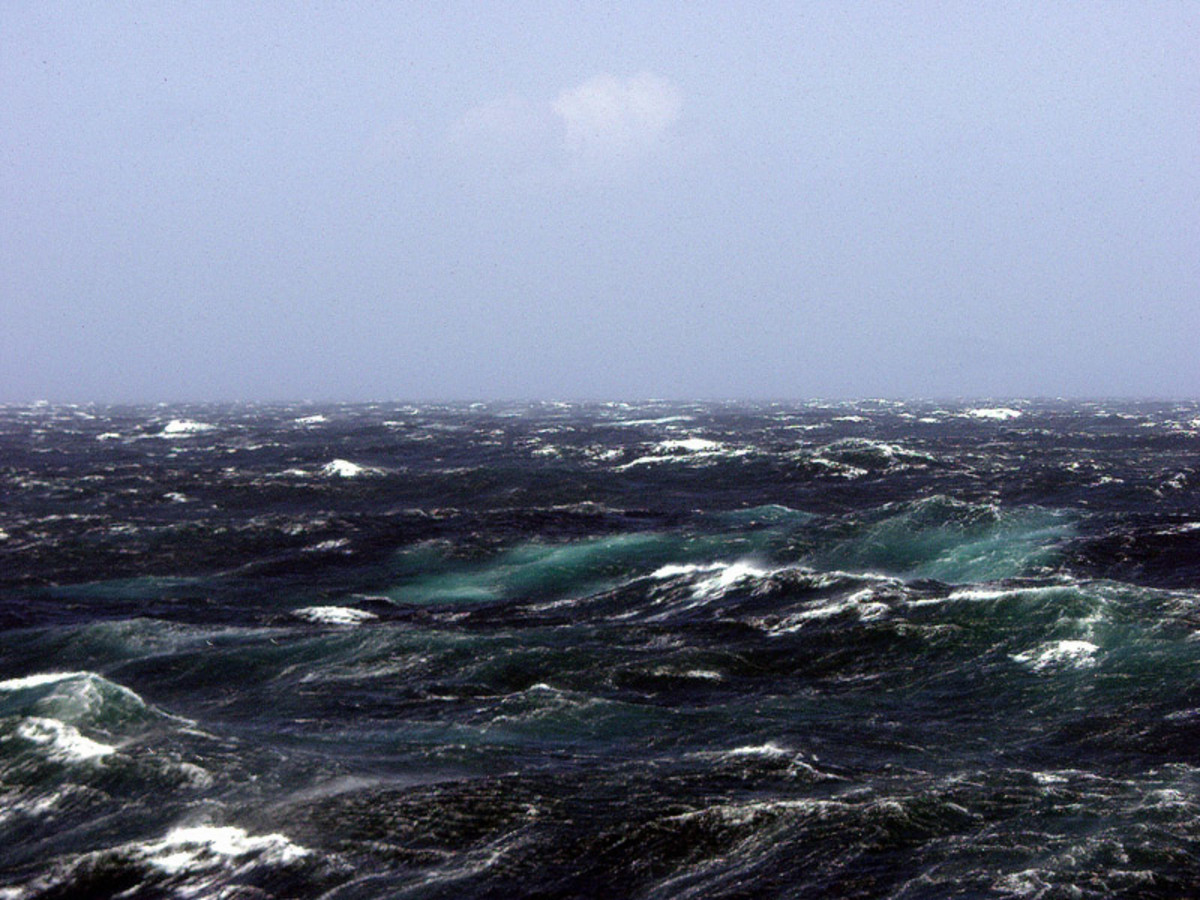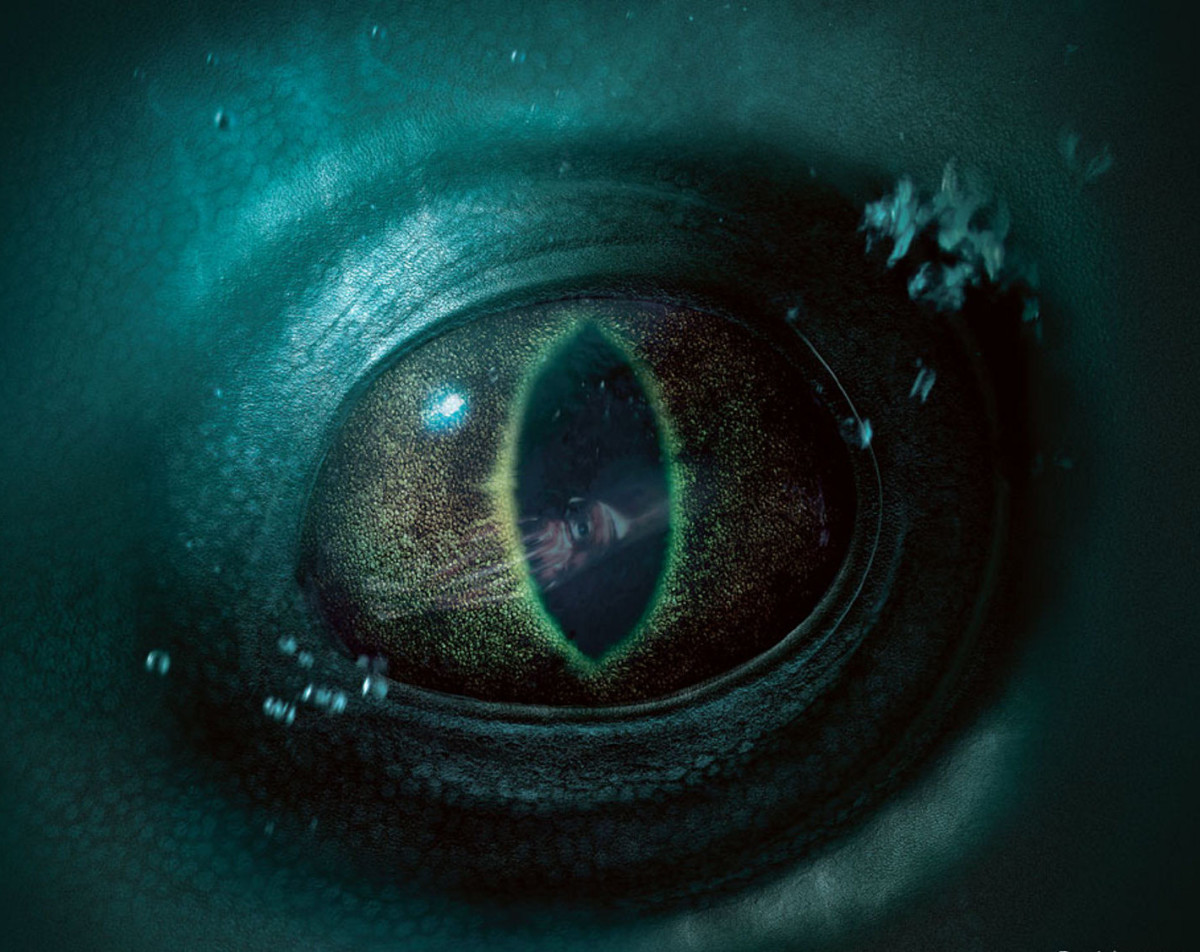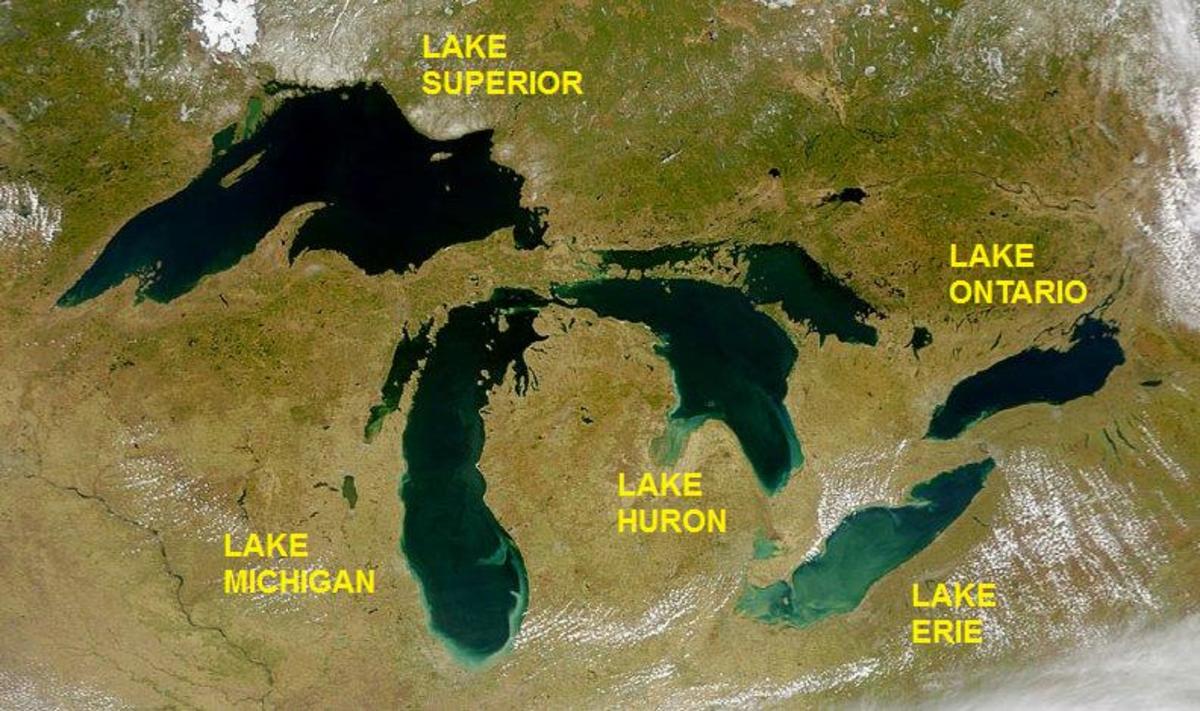The Arctic Sea Ice is Melting: What Does This Mean For Us?
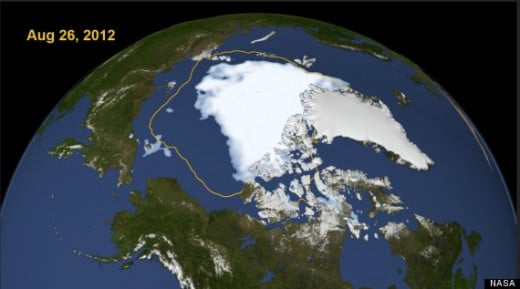
Many of us have heard about it in the news and some friends may have even mentioned it to you: The recent reports about how the Arctic ice is melting. Without understanding the planet, or how our environment depends on this ice, the fact that it's melting may not mean a whole lot to you. In fact, you may not be concerned at at all.
That's understandable because we all don't follow stuff like this everyday, and honestly, the campaign to cover up climate change did a pretty good job for a couple of decades. Unfortunately now though, the cat is out of the bag - we are not only facing the consequences of our indecision's and inaction but we are now facing natural weather related disasters of an untold scope - in the U.S. alone extreme weather events have already caused over 55 billion dollars of damage in just this year. Much of this is related to the fact that the Arctic ice is melting.
How is the Arctic important to us?
So what roie exactly does the Arctic ice play in the planets existence? The Arctic area serves many purposes:
- Arctic ice influences atmospheric circulation and, hence, weather and most importantly, climate.
- The Arctic is home to many species of animals, including Polar Bears, Snowy Owls and Wolverines (some of these species are now considered endangered)
- The Arctic is also inhabited by several different groups of indigenous people, and also by relatively recent immigrants of mostly European background. Indigenous populations now range from about 80% in Greenland, 50% in Canada, 20% in Alaska, 15% in Arctic Norway and as little as 3-4% in Arctic Russia. All in all, the population of the Arctic region is estimated to be about 4 million people.
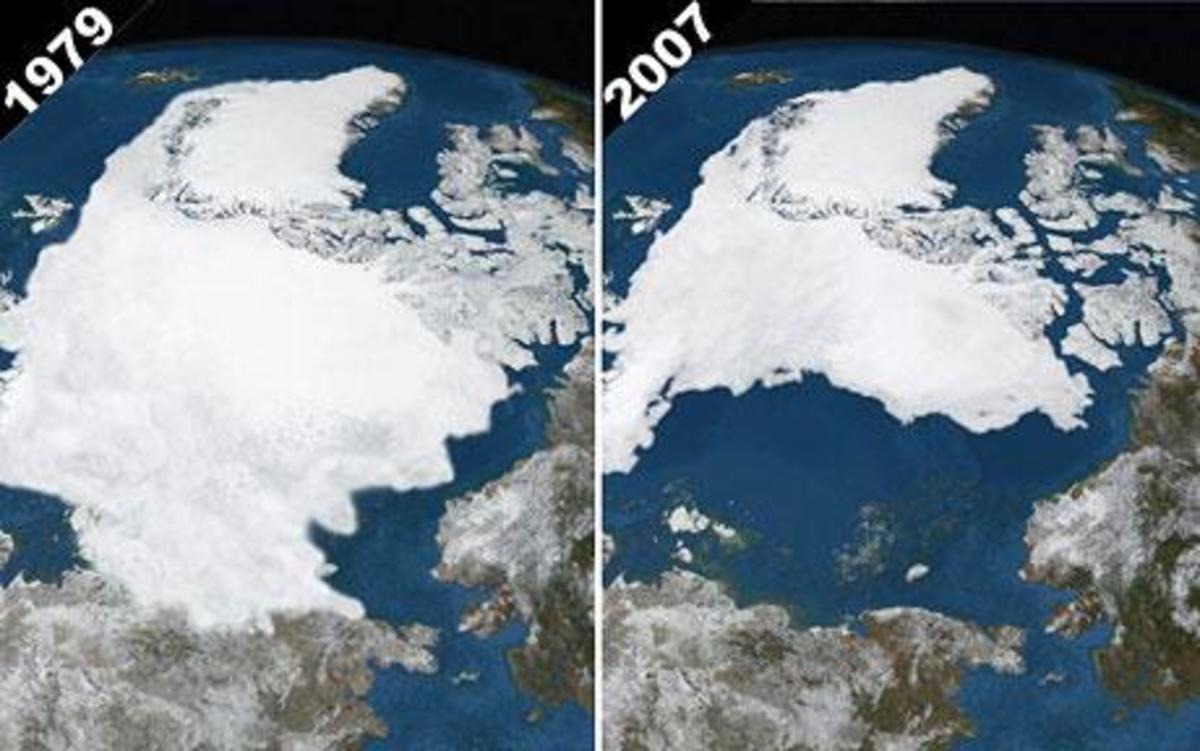
The effects of the Arctic ice melting
The effects of the Arctic ice melting are pretty staggering - and the pace that the Arctic ice is melting at is alarming scientists and climatologists alike. Just within the last few years, the Arctic ice has continued to shatter records for ice melt. It's now estimated that the Arctic ice level is at its lowest level in 1 million years.
This comes from noted sea ice geophysicist and climatologist Professor John Yackel from the University of Calgary who goes onto say "This is the smallest minimum ice extent we've ever had, and not just in the satellite record, but probably in the last million years."
Yes, 1 million years. Pretty scary stuff - considering we can't go back that far and ask the animals or people what a heating Earth felt like back then. On the photo above to the right, you can see the drastic amount of ice that has melted between the years 1979 and 2007 (taken through satellite imagery)
With this rapid melting of ice in the Arctic, here are some of the effects we will have (and some we already experiencing):
- More severe weather extremes: Hurricanes, storms and derechos (windstorms), flooding, fires (caused by warmer weather), droughts, tornadoes, landslides and typhoons.
- Rising sea levels. According to a recent study, ocean levels south of Humboldt County in California will rise up to 1 foot in the next 20 years, 2 feet by 2050, and up to 5 feet by 2100 (and this could be a conservative expectation at this moment) The seas will rise worldwide as a result of the melting ice.
- Loss of habitat for not only the animals that live in the Arctic but more importantly the indigenous people that call the Arctic home (this is already happening)
- A probable slowing and perhaps stoppage of the thermohaline loop that serves sort of like a "conveyor belt" to move water throughout the world.The thermohaline circulation plays an important role in supplying heat to the polar regions, and thus in regulating the amount of sea ice in these regions. This conveyor belt slowing or stopping will lead to irreversible and catastrophic damage to the Earth and its inhabitants.
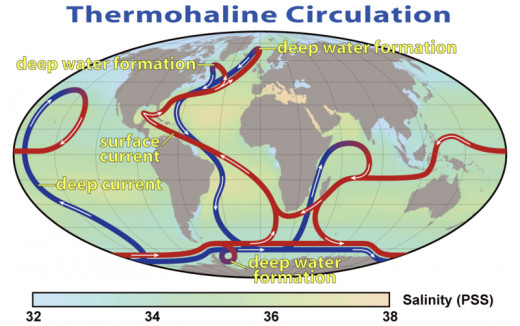
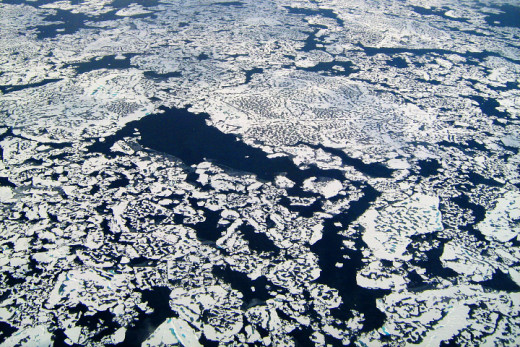
The rise of methane
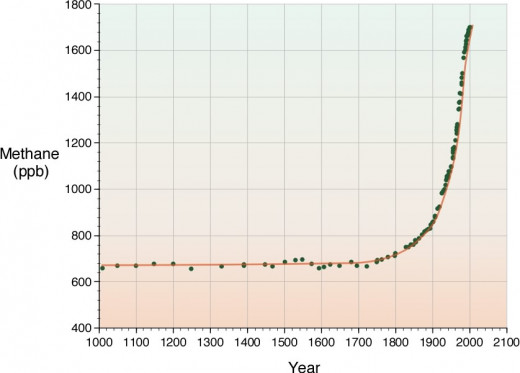
Methane rising from the ocean floor
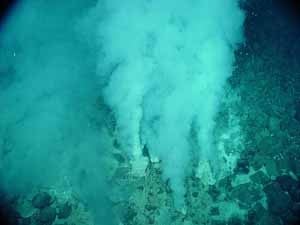
Playing with the unknown
Perhaps the most frightening effect we could experience from the Arctic ice melting is the release of methane gas which is trapped beneath the Arctic ice in permafrost. Right now it's estimated that there are already 48 million tons of methane entering our atmosphere from eastern Siberian permafrost alone each year.
Methane gas is a greenhouse gas that is twenty times more powerful than carbon dioxide,
Those tons of methane that are being released are coming from over 150,000 methane "seeps" that have been found beside melting glaciers and near melting permafrost. These seeps of methane could have a massive impact on global warming and cause a “planetary emergency”, according to scientists.
Meteorologist Lord (Julian) Hunt said that some in the scientific community have been reluctant to discuss the possibility of a catastrophic release of the potent gas. “There is quite a lot of suppression and non-discussion of issues that are difficult, and one of those is in fact methane," he said.
Because the sea ice is white, it reflects 80 percent of the sunlight that strikes it back into space. When sea ice melts, the darker ocean below the ice absorbs about 90 percent of the energy. This cycle, once started, ends up melting even more ice as the oceans warm. This in turn releases methane from the permafrost and Co2 which will lead to more global warming and higher temperatures here on Earth.
Once established, which seems to be happening now, a vicious cycle of warming is created on the planet. What exactly will happen if a catastrophic release of methane happens is one of those things that is not only hard to digest but hard to even talk about or comprehend.
A massive explosion of methane gas erupting from the ocean depths may have caused the Earth’s biggest massive extinction 251 million years ago, according to U.S. geologists.
What is unknown is exactly how this methane escaping into our atmosphere will affect us and our existence here on Earth. Addressing this growing threat is perhaps one of the most important things that our world governments should be looking long and hard at right now.
Dorsi Diaz is the climate change reporter for the San Francisco Examiner online. To follow her and find out the latest news on climate change you can go here and subscribe to Dorsi's RSS feed. She writes reports on how the climate is affecting the Earth, reports on the drought and on food shortages caused by climate change. She also reports on ongoing extreme weather events from around the world.


